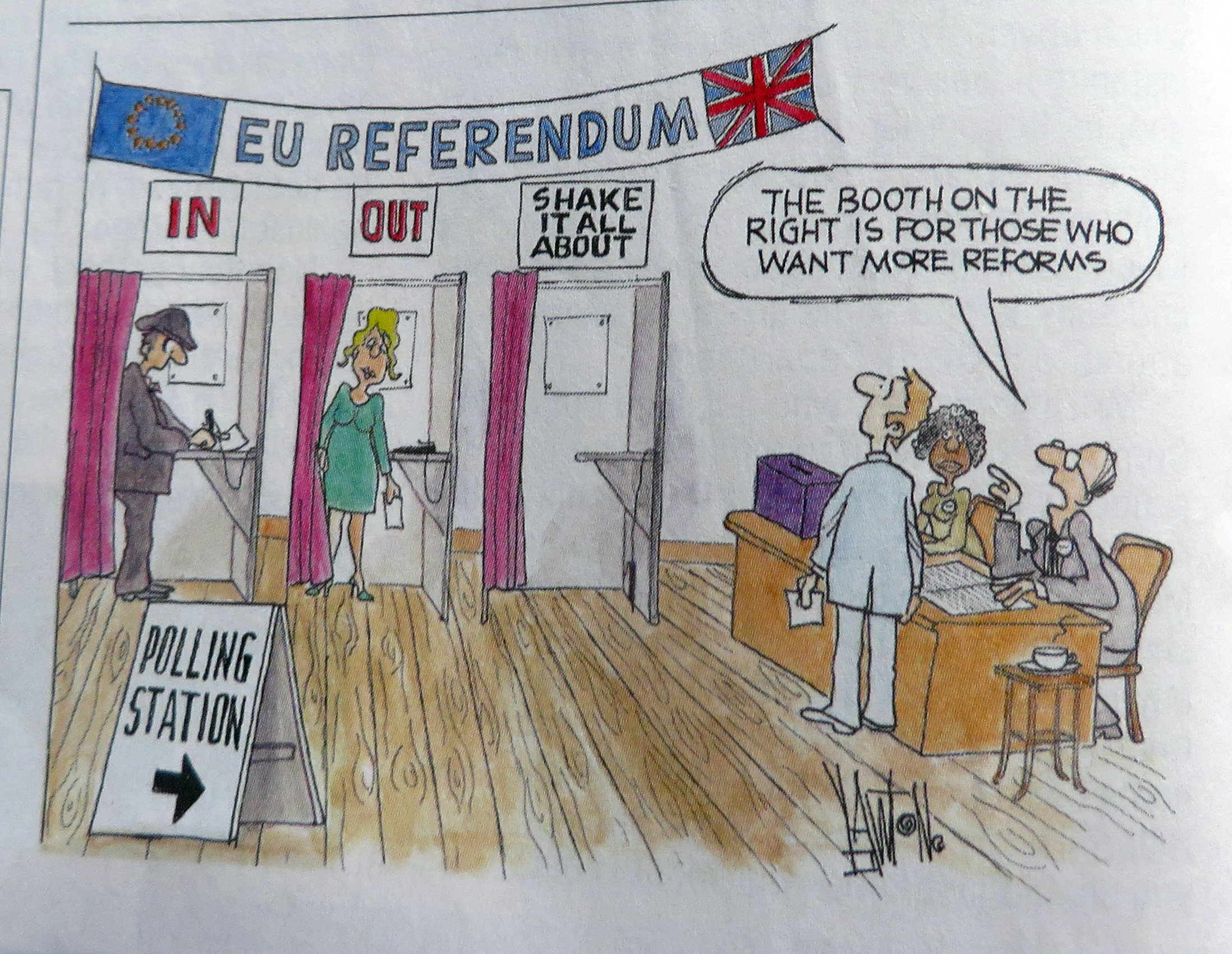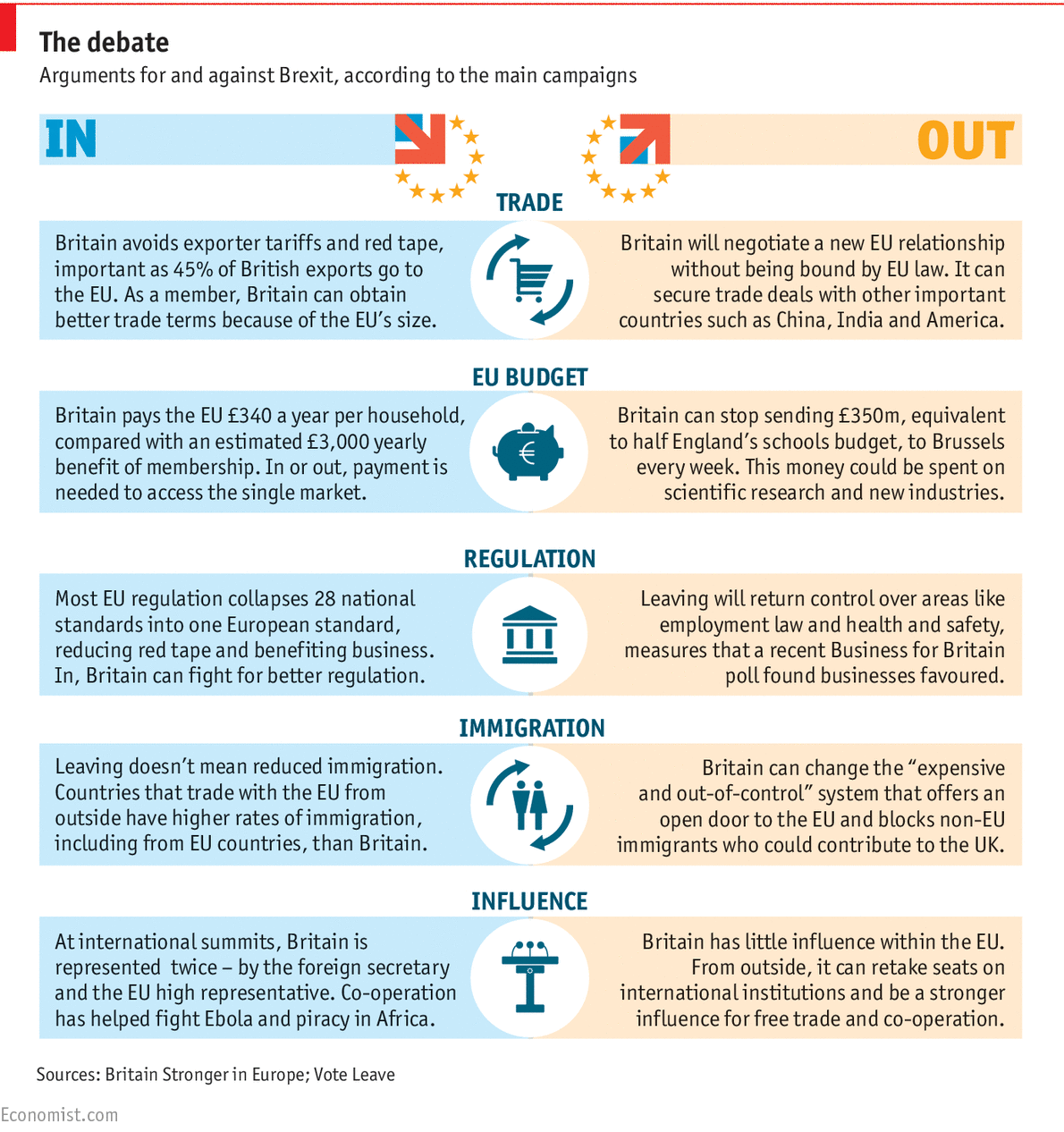
=-=-=-=-=-=-=-=-=-=–=
Investors need things to scare them, or they don’t have a normal life. ?This is kind of like the bachelor uncle who tells little?nieces and nephews about scary things that lurk under their beds, and only come out at night for mischief and mayhem. ?(Then the parents pick up the pieces later, when they wonder why William or Elizabeth no longer sleep well at night.)
That’s the way I feel about US & international market reactions to the possibility of UK/Britain exiting the EU, otherwise called “Brexit.” ?It’s overblown. ?Quoting from an older article of mine:
Governments are smaller than markets; markets are smaller than cultures.
What I am saying is that almost everything affecting the needs of people will get done when there is sufficient freedom. ?If Brexit occurs, the UK will negotiate some agreement that is mutually beneficial to the UK and the EU, and most things will go on as they do today. ?Even with a subpar agreement, perfidious Albion is very effective at getting what they need completed. ?This is especially true of their very effective and creative financial sector in the City of London without which most effective international secrecy, taxation avoidance and regulatory avoidance business could not be done.
There are other reasons not to worry as well if you live outside the UK. ?The biggest reason is that the UK is only a small part of the global economy, and the economic effects on non-EU trade and finance are smaller still. ?And unlike the idea was small but “contained,” in this case, large second order effects aren’t there. ?Yes, someday other nations may wise up and decide to leave the EU, but?no major countries are likely to do that over the next decade, absent some crisis. ?(Crises in the EU? Those aren’t allowed to happen; ask any Eurocrat, they’ll tell ya.)
A second reason not to worry is that leaving the EU ends a second level of regulation of UK economic activity. ?This will enable better growth in the longer term. ?Are there things that the UK will lose? ?Sure, they won’t have as good of a trade deal with the EU, but they will have the ability to try to craft better deals elsewhere, like a Transatlantic Free Trade Area.
The Economist had a decent summary of the good and bad for the UK over leaving the EU. ?Here’s their summary table:

Looking over this, the UK already depends less on the EU than most member states, making the exit less of a big deal for the UK and the EU.
My view is this: leaving the EU won’t be a big thing in the long run for the UK. ?In the short-run, there will be some uncertainty and volatility as things get worked out. ?For the rest of the world, it will be a big fat zero, so ignore this, and focus on something with more meaning, like bizarre monetary policy, and the twisting effects it is having on our world, or the global entitlements crisis — too many people retiring, too few to support them, especially medically.
So, be willing to take some additional risk if people mindlessly panic if the UK/Britain exits the EU.

Thank you for putting this in perspective.
As a Brit, and somebody you will vote for Britain to leave the EU, I am slightly perplexed by how much negative attention a potential exit seems to be generating in worldwide financial news and market movements. Britain is a small portion of world trade and we will be trading with the world at roughly similar levels after an exit (very slightly more/less if you believe different arguments forwarded). So what? An exit makes no difference to worldwide investors.
Personally I believe British long-term trade will increase as countries are best able to sign trade deals bilaterally. With only two parties involved common ground can be found quickly. When the EU tries to sign trade deals with countries outside the EU it has to satisfy all 27 constituent countries, which is one reason it is embarrassingly slow at concluding deals. And it’s the reason the WTO conducts worldwide deals at a snail-like pace.
As you correctly state, culture is extremely important. Britain has a free-trade ethos born out of its merchant Empire and residual political memory of the disastrous ‘Corn Laws’ – tariffs on grain introduced in 1815 that were abolished in 1846 after popular revolt. Polls show Britons to be some of the fiercest supporters of the principles of free trade of anywhere in the world. Outside of the EU, Britain would be keen to conduct and conclude trade deals that lowered tariffs with its trading partners. Of course, this reasonable assumption is missing from the economic models forwarded by the OECD and IMF which predict short-term disaster and lower long-term levels of economic growth.